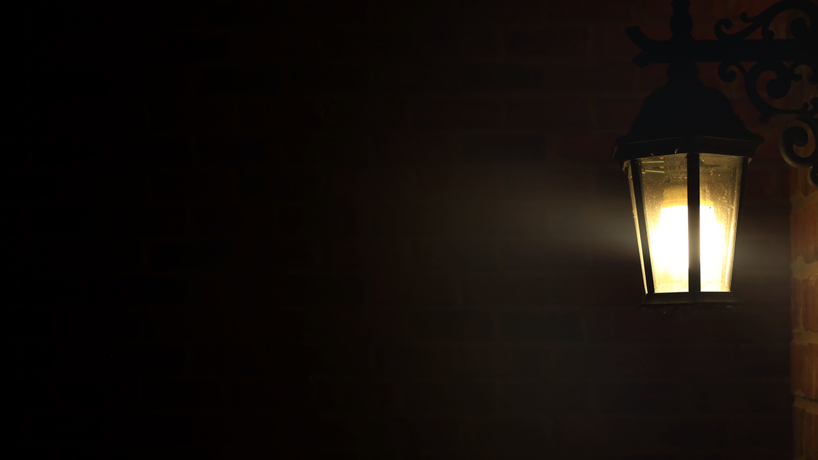
Are You Too Afraid of the Dark?
Shelly Weaver-CatherAs the sun dips below the horizon, most of us embrace the night and start getting ready for bed without a second thought.
We wind down and cuddle into soft pajamas and fluffy bedding, grateful for another long day’s end and looking forward to a night of deep sleep. But for 10% of adults bedtime is anything but relaxing.
Nyctophobia, the irrational and overwhelming fear of the dark, can keep many sleepers on edge all night long and lead to other fears taking over your sleep or even insomnia.

What’s a healthy level of fear at nighttime? Our ancestors needed to associate nighttime with terror to survive because low light meant a higher chance of danger. You wouldn’t be able to see a potential threat like you would during the day, and every culture has their tales of what awaits us in the night. It makes sense that purely from a biological perspective, the slight uneasiness in pitch black darkness we feel is totally normal and not all cause for concern.
It’s important to stay alert when there’s a chance for harm, and we’re born with an instinct to stay out of the dark.
When we’re little, it’s super common, and necessary, for us to be afraid of the dark. Beginning at around age two, children start to have a better grasp of the world around them and are constantly learning the difference between real and make believe. Most kids spend a majority of their days running around in kitchen towel capes and cardboard rocket ships, so when it comes time to go to bed, it can be hard to turn off their imagination and logically break down things that go bump in the night. They also become increasingly aware that the world around them isn’t a safe bubble and that everyday objects and people can be “bad” and cause them harm.
Going through this phase of learning helps kids regulate their own safety during the day, but it can easily run over into bed time and create scenarios that feel very realistic—the monster under their bed, the bad guy in the closet, the robber at the door are all possible realities to a child.
Most of us grow out of this within a few years, but when the fear lingers and becomes compulsive or disruptive to day-to-day life, it’s no longer an evolutionary byproduct but a legitimate threat to our mental health.

How do I know if I have nyctophobia? Nyctophobia isn’t quite the same fear that you have as a child—while monsters and supernatural creatures might be something that worries someone, it’s typically more reality-based than that. As with most phobias, the fear in question can trigger extreme anxietythat starts a cycle of worst-case scenario thoughts. These cycles are hard to break and can be completely debilitating in some people, preventing the restorative rest that your body needs to maintain its grip on reality, creating a loop of fear and exhaustion.
Symptoms of nyctophobia:
- Shaking, trembling, or tingling
- Upset stomach
- Trouble breathing steadily
- Heart rate increase
- Sweating
- Hot or cold flashes
- Tight chest
- Feeling like you need to escape
- Feeling “crazy” or “out of control”
If you’re routinely experiencing any of these symptoms when faced with darkness, it may be time to seek help from a doctor. Losing sleep out of fear of the dark can cause many other health risks and there are many treatments that help prevent these responses.

Treatment for nyctophobia Treatments for phobias can range from cognitive behavioral therapy to medication—what’s right for one person may not work for another and your doctor can help decide what will be most successful for you. Noticing these symptoms for longer than six months generally indicates that you’re experiencing a phobia.
Exposure therapy Exposing yourself to the situation that causes your anxiety helps many successfully cope with their phobias, though the therapy isn’t for everyone. Before diving into exposure therapy, do your research and speak with a therapist that can help determine if this is the right kind of treatment for your specific needs.
Exposure therapy utilizes visualization of your fear, virtual reality, direct confrontation, or any combination of methods to help you acclimate to the situation you fear and overcome it.
Meditation Breathing deeply and relaxing your body can help calm your mind, easing stress and panic away. Meditation helps you focus on clearing the mind and acknowledging thoughts and feelings without emotionally reacting to them.
Cognitive therapy Cognitive therapy is often combined with other types of treatment depending on the severity of the phobia to use information, facts, and other coping mechanisms to debunk fear. Someone undergoing cognitive therapy for nyctophobia may be guided by a professional to remove negative connotations of the dark and replace them with positive associations and information that helps build a healthy consideration of their fear.



